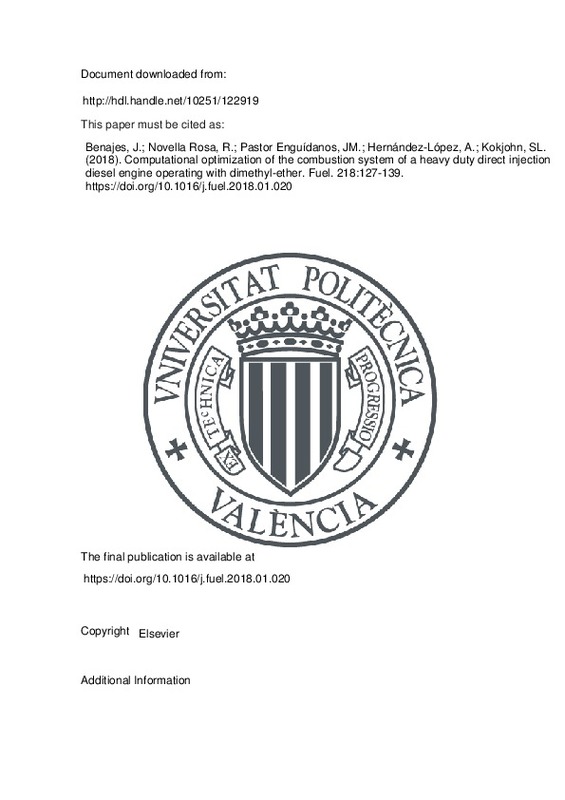JavaScript is disabled for your browser. Some features of this site may not work without it.
Buscar en RiuNet
Listar
Mi cuenta
Estadísticas
Ayuda RiuNet
Admin. UPV
Desde el lunes 3 y hasta el jueves 20 de marzo, RiuNet funcionará en modo de solo lectura a causa de su actualización a una nueva versión.
Computational optimization of the combustion system of a heavy duty direct injection diesel engine operating with dimethyl-ether
Mostrar el registro completo del ítem
Benajes, J.; Novella Rosa, R.; Pastor Enguídanos, JM.; Hernández-López, A.; Kokjohn, SL. (2018). Computational optimization of the combustion system of a heavy duty direct injection diesel engine operating with dimethyl-ether. Fuel. 218:127-139. https://doi.org/10.1016/j.fuel.2018.01.020
Por favor, use este identificador para citar o enlazar este ítem: http://hdl.handle.net/10251/122919
Ficheros en el ítem
Metadatos del ítem
| Título: | Computational optimization of the combustion system of a heavy duty direct injection diesel engine operating with dimethyl-ether | |
| Autor: | Hernández-López, Alberto Kokjohn, Sage L. | |
| Entidad UPV: |
|
|
| Fecha difusión: |
|
|
| Resumen: |
[EN] A genetic algorithm optimization methodology is applied to the design of the combustion system of a heavy-duty diesel engine fueled with dimethyl ether (DME). The optimization includes the key combustion system related ...[+]
|
|
| Palabras clave: |
|
|
| Derechos de uso: | Reconocimiento - No comercial - Sin obra derivada (by-nc-nd) | |
| Fuente: |
|
|
| DOI: |
|
|
| Editorial: |
|
|
| Versión del editor: | https://doi.org/10.1016/j.fuel.2018.01.020 | |
| Código del Proyecto: |
|
|
| Agradecimientos: |
Authors acknowledge that this work was possible thanks to the Ayuda para la Formacion de Profesorado Universitario (FPU 13/02817) belonging to the Subprogramas de Formacion y de Movilidad del Ministerio de Educacion, Cultura ...[+]
|
|
| Tipo: |
|







![[Cerrado]](/themes/UPV/images/candado.png)


